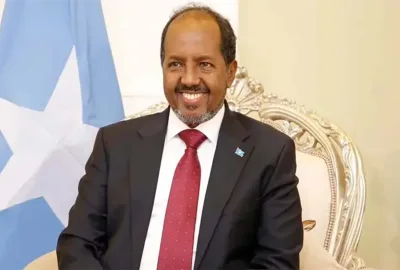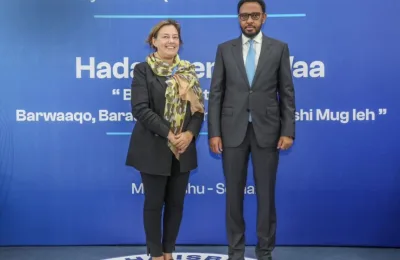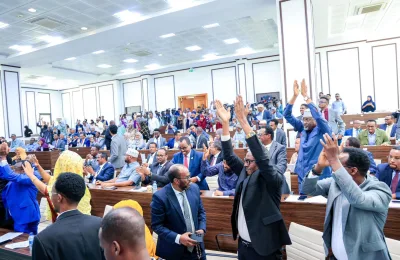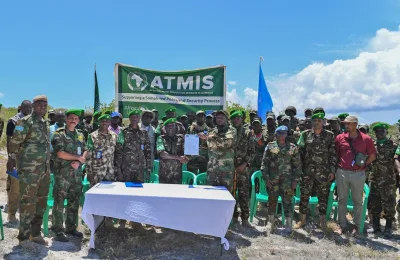Somalia’s Federal government cabinet has unanimously ratified an international treaty to ban deadly cluster bombs, which…
 Somalia’s Federal government cabinet has unanimously ratified an international treaty to ban deadly cluster bombs, which prohibits the use, production, transfer, and stockpiling of cluster munitions.
Somalia’s Federal government cabinet has unanimously ratified an international treaty to ban deadly cluster bombs, which prohibits the use, production, transfer, and stockpiling of cluster munitions.
‘’Somalia has taken the lead in the region by ratifying this crucial humanitarian agreement. This will help us to encourage investment in the country without any concerns felt by other parties,’’ said Abdirizak Omar Mohamed, Somalia’s minister of Internal Security following the weekly meeting of the cabinet in Mogadishu on Thursday.
Somalia will join 96 other States already party to the Convention on Cluster Munitions and is not believed to have used, produced, stockpiled, or transferred cluster munitions.
In 2012, the Somali Federal government signed the Anti-Personnel Mine Ban Convention; it pledged to destroy its landmine stockpile within four years and to de-mine the country within 10. More than 21,461 UXOs and anti-personnel mines have been destroyed in the previous five years in Somalia, according to the UN Office for Project Services.
A single cluster bomb contains hundreds of brightly coloured, baseball-size submunitions that often fail to explode and can sit dormant for decades, posing an ongoing hazard to civilians, especially young children in dozens of postwar countries.
Cluster bombs date back to the Second World War, but came into wider use by the United States during its bombing of Vietnam, Cambodia and Laos in the 1960s. They’ve been used by the U.S. and its allies in Iraq and Afghanistan, and most recently surfaced in Syria, Ukraine and Libya.
The Convention on Cluster Munitions represents a major advance in protecting civilians both during and after armed conflict. In addition to banning cluster munitions, it requires the clearance of affected areas within 10 years and destruction of stockpiled weapons within eight years, and includes provisions to help affected nations with clearance and victim assistance.
Horseed Media







